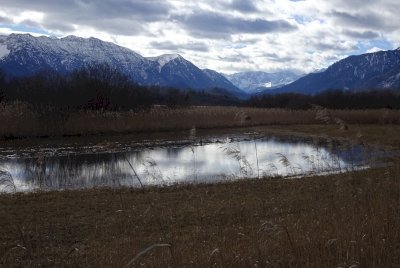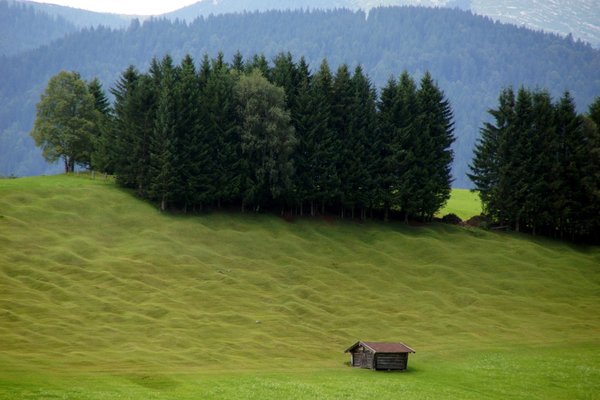Germany
Alpine and pre-alpine meadows
The Alpine and pre-alpine meadow and marsh landscapes are a series of cultural landscapes in which a traditional form of agriculture in the Alpine region has been preserved.
The cultivation of these historic meadowlands dates back to the 15th and 16th centuries. The proposal includes historic Wiesmahder (poor meadows), the largest occurrence of "Buckelwiesen"(poor grassland with many humps) and the Murnauer Moos, the largest contiguous marshland in Central Europe.
Site Info
Official Information
- Full Name
- Alpine and pre-alpine meadow and marsh landscapes (ID: 5974)
- Country
- Germany
- Status
-
On tentative list 2015
Site history
History of Alpine and pre-alpine meadows
- 2023: Requested by State Party to not be examined
- .
- 2015: Added to Tentative List
- Added to tentative list
- Type
- Cultural
- Criteria
Links
All Links
News Article
- Feb. 17, 2020 spiegel.de — Garmisch-Partenkirchen bewirbt sich um den Unesco-Weltkulturerbe-Titel. Manche Einheimische packt das kalte Grausen.
Community Information
- Community Category
- Human activity: Agriculture
Travel Information
Recent Connections
News
- spiegel.de 02/17/2020
- Garmisch-Partenkirchen bewirbt sic…
Community Reviews
Show full reviews
The Allgäu - a region renowned for its beauty, its marvelous mountainsides, rolling hills and mountain meadows full of flowers. Nothing of this matters, though, as this WHS proposal is only about some specific spots with flat, grassy marshlands. It is one of these sites where it is difficult to point out what to see and why it does matter. I choose to visit the 'Murnauer Moos' area, as it has a rather well specified location, easy access points and a hiking trail going all through the interesting area. So what's to see ? Mainly a lot of brown grass and some puddles. The on-site signs talk a lot about biodiversity and endemic species - none of which will be easily perceivable by the common visitor. Honestly, I walked the three hour trail and found nothing that looked remarkable. Marshlands might be an oddity in the alpine region, but the northern half of Germany consist of nothing but swampy flatlands. Even the mountains surrounding the marshlands seem much more interesting than these flat brown spots. And the marshlands are not some untouched wilderness - there are clear signs of human cultivation and caretaking all over it. If you have not guessed it until now, this WHS tentative site did not impress me at all. But wait, the site is actually defined as a cultural site, not a natural site. Yes, according to the official description, mowing and haymaking twice a year is already an act of human genius. Sorry, but …
Keep reading 0 comments
